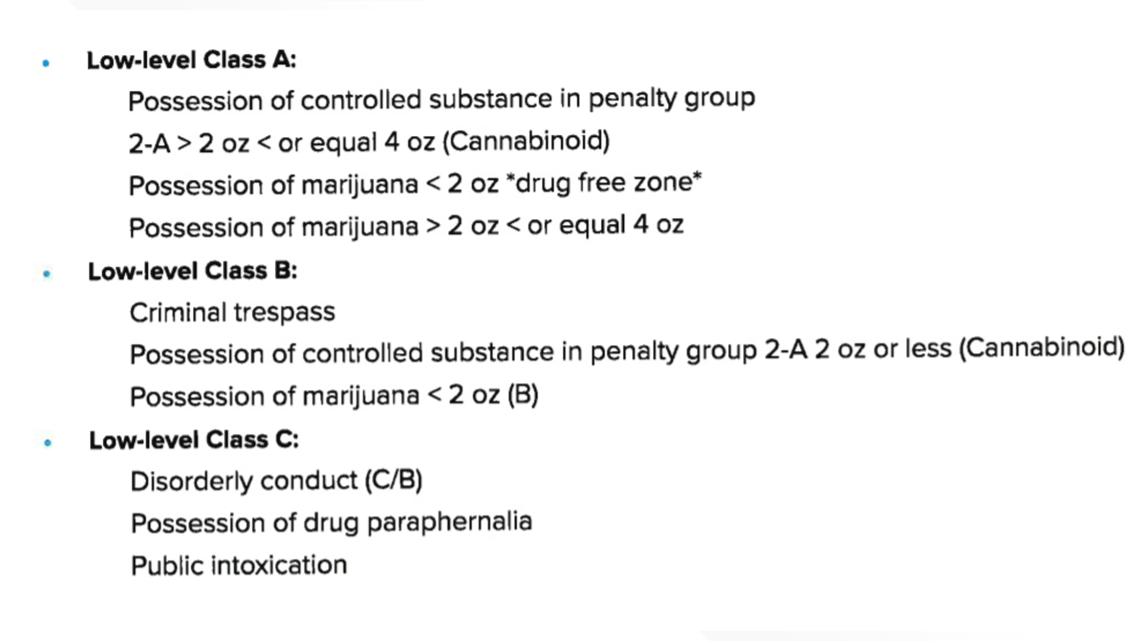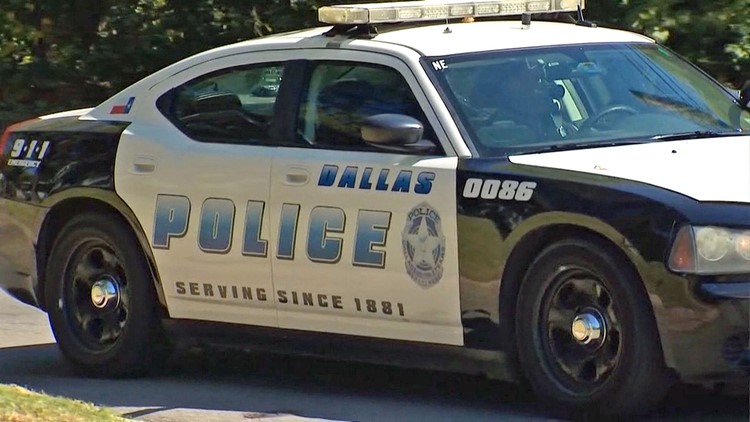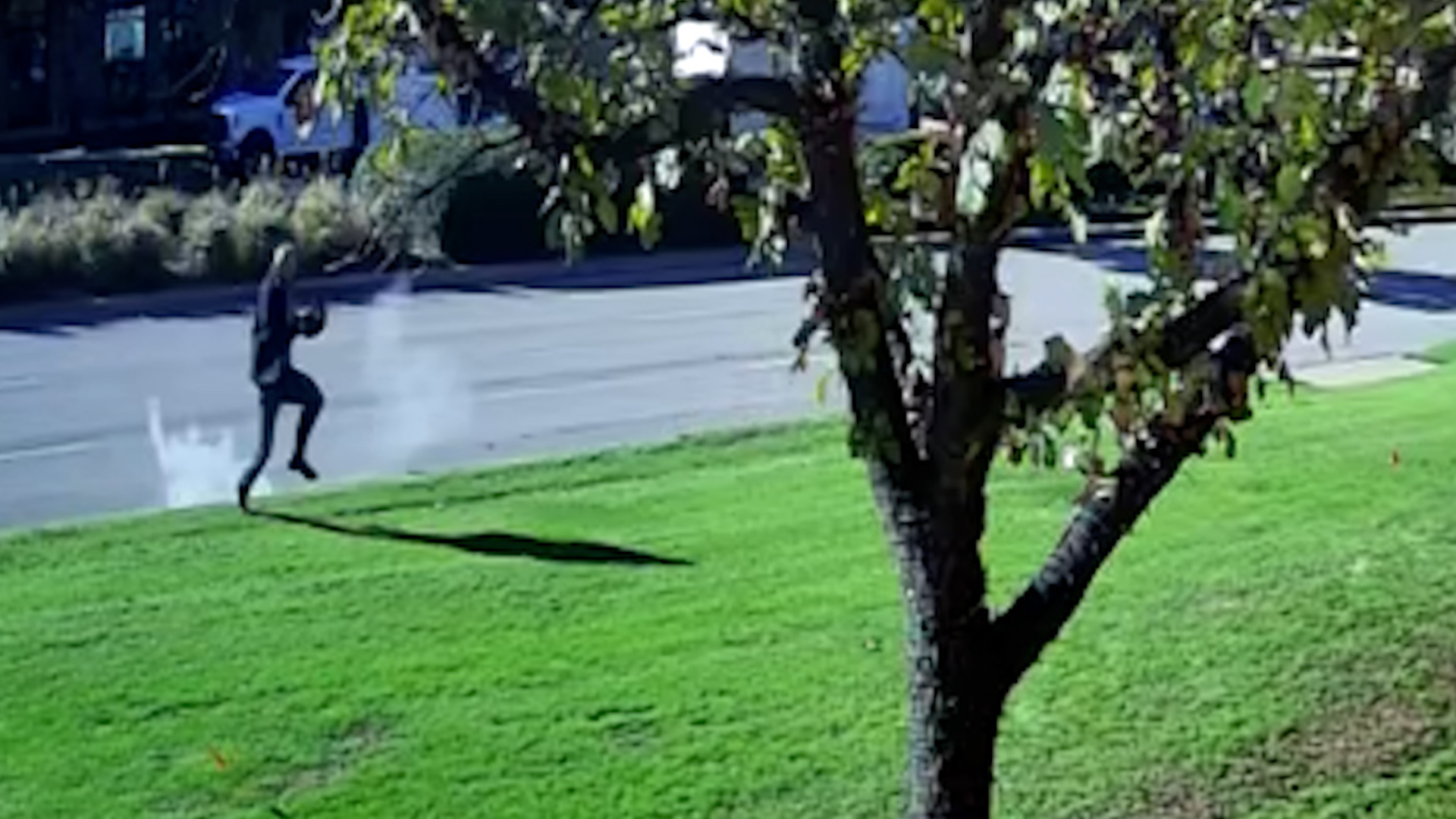DALLAS —
A three-year study released Thursday from the Dallas Office of Community Police Oversight looked at low-level offense arrests and showed there were disparities in those types of arrests for Black people compared to the city's Black population.
The study from the oversight office looked at public data to analyze low-level arrests in Dallas and shared recommendations to lessen the impact of misdemeanor enforcement on the community, police department and city resources, the report said.
Most low-level custodial arrests during the three-year study period were public intoxication, possession of marijuana, and criminal trespass, the report said.
The report outlined how Black residents are more often arrested for low-level offenses like public intoxication, low-level drug-related arrests, disorderly conduct and criminal trespass which the report claims "are not a public safety threat."
It also recommended that the Dallas Police Department should officially de-prioritize low-level arrests in their policy, including marijuana, possession, public intoxication and criminal trespass arrests when the offense doesn't involve a felony charge or Class A or Class B offense.
Currently, the possession of under 4 oz is eligible for a cite and release citation, the department said during a Public Safety Committee briefing in March.
Deprioritizing low-level arrests could save the city money and save time for officers, the report suggests. The police department is already looking at ways to lessen the burden of low-level marijuana arrests, with exceptions such as if an offender has under 2 oz with a firearm or a criminal history of violent offenses then they would be charged.
Sgt. Warren Mitchell said that the department's mission is to be fair and impartial and that any type of inequity is concerning. He said they will be reviewing the study data and the study's recommendations.
"Like many law enforcement agencies across the country, the Dallas Police Department is a proponent of police reform, and will determine if changes in policies, procedures, and/or training are warranted," Mitchell said. "The Dallas Police Department is committed to bridging the gap with all our residents and will uphold our oath to protect and serve the city of Dallas.”
The report was addressed to Mayor Eric Johnson, members of Dallas City Council, City Manager T.C. Broadnax, Chief Eddie Garcia, and members of the community police oversight board.
"I support the Chief and the department focusing their limited resources on violent crime and drug houses," said Councilmember and Public Safety Committee Chair Jennifer S. Gates. "I do not support council taking action to remove low level-offenses because I believe the quality of life for many neighborhoods will be negatively impacted without the tool to enforce."
The City of Dallas Office of Community Police Oversight used publicly available arrest data. Go here to read the report.
“Changes to City ordinances and DPD’s General Orders can aid in Dallas’ efforts to decriminalize people of color and other marginalized communities for low-level offenses," said Director of the Office of Community Police Oversight Tonya McClary.
Study findings
The report described how protestors and activists demanded change for Dallas residents because of: lack of transparency, discriminatory practices and the city’s approach to addressing social and public health issues.
The oversight board formed a partnership with the Leadership Conference Education Fund’s New Era of Public Safety Initiative for the study, which examined arrests from July 1, 2017 to June 30, 2020.
The study's findings included the following on the practices were that misdemeanor enforcement:
Creates unnecessary and damaging interactions between police and civilians
Contributes to racial disparities in the criminal justice system
Runs up excessive costs for police departments and communities
Requires many hours of police officer time to handle, which takes them away from helping address violent crime
The enforcement arrests disproportionately Black people in Dallas
The recommendations are aimed to lessen the impact of enforcement of these laws on the Dallas community, allow officers to focus on violent crime and save the city financial resources that could be reallocated to address the underlying causes of misdemeanor crime, the report said.
During the three-year study, it found that 85% of low-level drug arrests were for possession of less than 2 oz of marijuana, the study says.
From Feb. 1 to Feb. 24, 2021, 80% of all marijuana arrests were for less than 2 oz, according to DPD in the last public safety meeting.
The report says that “substantial research shows no relationship between low-level enforcement and crime reduction" and it does not influence overall crime.
Low-level offenses
On average, Dallas police officers conducted 16 low-level arrests per day during the study period.
If the arrest was involved in a felony charge or Class A or Class B offense, it is not included in the report and was not considered a low-level offense.
While residents who identify as Black or African American are 24% of the population in Dallas, they represented 44% of the low-level custodial arrests during this period, the study said.
Most arrests for low-level offenses are concentrated in downtown and Southern Dallas. Ten of the 105 ZIP codes in Dallas account for 53% of low-level arrests.


Public intoxication
Public intoxication represented 76% of the low-level arrests for the study period. While Black people represent 24% of the population, Black people make up 37.5% of the public intoxication arrests.
Total public intoxication arrests:
White, non-Hispanic people arrested: 30%
White, non-Hispanic population: 29%
Hispanic/Latino people arrested: 31%
Hispanic/Latino population: 41%
Black people arrested: 37.5%
Black population: 24%
Low-level drug-related arrests
Black people were significantly overrepresented in low-level, drug-related arrests.
Total low-level drug-related arrests
Black people arrested: 57.3%
Black population: 24%
White, non-Hispanic people arrested: 9%
White, non-Hispanic population: 29%
Hispanic/Latino people arrested: 33%
Hispanic/Latino population: 41%
Possession of less than 2 ounces of marijuana
Out of 2,608 arrests, 1,982 were for this charge during the time period from July 1, 2017 top June 30, 2020.
Black people arrested: 57%
Black population: 24%
White, non-Hispanic people arrested: 9%
White, non-Hispanic population: 29%
Hispanic/Latino people arrested: 34%
Hispanic/Latino population: 41%
“The overrepresentation of Black residents in marijuana possession arrests raise serious discriminatory policing concerns, given the similarity of marijuana usage rates of whites compared to Blacks nationally,” the report said.
Disorderly conduct and criminal trespass
Black people were overrepresented in arrests for disorderly conduct and criminal trespass.
Of the 17,240 low-level offenses, 1,828 fall into two non-drug-related categories: criminal trespass and disorderly conduct.
Black people arrested: 71%
Black population: 24%
White, non-Hispanic people arrested: 16.5%
White, non-Hispanic population: 29%
Hispanic/Latino people arrested: 12%
Hispanic/Latino population: 41%
Recommendations
Recommendations from the study include:
Repeal city ordinances that criminalize people of color for low-level offenses
Stop arrests for low-level state offenses by expanding cite-and-release policies for certain low-level offenses, amend the DPD policies to align with the District Attorney’s priorities and national best practices, and re-prioritize arrests for low-level offenses by removing them from DPD’s enforcement goals.
Invest money saved into community-based services
Report publicly detailed, disaggregated data for arrests and citations of all offenses
The report says that Dallas can reallocate the money and personnel resources that it takes to arrest and jail people for low-level marijuana offenses, which is something the department is currently looking at.



